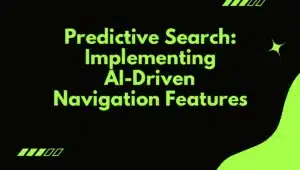In an era where speed is synonymous with success, the advent of 5G technology is set to revolutionize the digital landscape. As consumers increasingly demand instantaneous access to information, businesses must adapt to this new reality by optimizing their online presence. At Cham Agency, we understand that the key to thriving in a 5G-enabled world lies in preparing your website for faster connectivity. In this article, we will explore five essential strategies that can enhance your website’s performance, ensuring it is indeed not only responsive but also engaging in a lightning-fast digital surroundings. Join us as we navigate the exciting opportunities and challenges brought forth by 5G, and discover how to position your online presence for the future.
Understanding the Impact of 5G on User Experience
The advent of 5G technology has transformed digital interactions, enhancing user experiences like never before. With substantially reduced latency and increased bandwidth, users can now enjoy smoother video streaming, lightning-fast downloads, and more seamless browsing. Websites optimized for 5G can leverage these improvements to deliver content quickly and efficiently, creating a more engaging atmosphere that keeps visitors returning. This fast-paced connectivity allows for richer multimedia elements, enabling interactive features that push the envelope of normal web design and functionality.
As users experience improved performance, their expectations evolve as well. To keep pace, it’s essential for website owners to prioritize optimizations that take advantage of 5G capabilities. Consider implementing strategies such as:
- responsive Design: Ensures that web content adjusts seamlessly across different devices and screen sizes.
- Image Optimization: Use formats like WebP to reduce loading times without sacrificing quality.
- Content delivery Networks (CDNs): Distributing content closer to users geographically can enhance load times significantly.
- Minifying Resources: Reducing the size of CSS, JavaScript, and HTML files can improve page speed and performance.
This proactive approach not only enhances user satisfaction but also aligns with the growing demand for immediate access to information in our fast-paced digital world.
essential Techniques for Enhancing Website Performance
To unlock the full potential of 5G connectivity, optimizing your website’s performance is essential. Start with image optimization; large images can significantly slow down loading times. Utilize formats like WebP and JPEG 2000 that offer superior compression while maintaining quality. Additionally, implement lazy loading techniques, which only load images when they become visible in the viewport, further enhancing speed. Another crucial aspect is minifying CSS, JavaScript, and HTML files. Reducing the size of these files can lead to faster parsing and execution, thus accelerating the website’s load time.
Consider adopting a responsive design that ensures your website adapts seamlessly across various devices. As 5G increases the number of connected devices, having a mobile-friendly layout becomes imperative. Implementing Content Delivery Networks (CDNs) can also substantially boost performance by caching content closer to your users. To analyse and refine loading speed, use tools like Google PageSpeed Insights and GTmetrix to identify bottlenecks and track improvements.Below is a simple comparison of load times before and after optimization:
| Metrics | Before Optimization | After Optimization |
|---|---|---|
| Page Load Time | 5.3 seconds | 2.1 seconds |
| First Contentful Paint | 3.9 seconds | 1.2 seconds |
| Time to Interactive | 7.1 seconds | 3.0 seconds |
Adapting Content Delivery for a 5G Environment
The advent of 5G technology is revolutionizing how content is consumed, making it essential for web developers and digital marketers to rethink their delivery methods. Customary websites built for slower connections may not harness the full potential of 5G, leading to missed opportunities for engagement. To take advantage of this lightning-fast connectivity, consider optimizing elements such as images, videos, and scripts. Implementing adaptive content strategies allows for a seamless experience across various devices and network conditions,ultimately creating a more appealing environment for users.
Key strategies to enhance content delivery in a 5G landscape include:
- Utilizing responsive design to ensure all content scales flawlessly across devices.
- Incorporating lazy loading to prioritize essential elements, reducing initial load time.
- Employing CDN services to distribute content closer to users, decreasing latency.
- Optimizing multimedia formats, such as using WebP for images, which reduces file sizes without sacrificing quality.
To illustrate the impact of these optimizations, the following table demonstrates potential improvements in loading times and performance metrics:
| Optimization Technique | Before 5G | After 5G |
|---|---|---|
| Page Load Time | 3.5 seconds | 1.2 seconds |
| Image Size Reduction | 100 KB | 30 KB |
| Video Buffering Time | 5 seconds | 0.5 seconds |
Leveraging Emerging Technologies for Future-Ready Web Solutions
As connectivity speeds soar with the rollout of 5G technology, businesses must adapt their web solutions to harness the potential of this innovation. Responsive design and optimized multimedia content are essential for ensuring that websites fully leverage the capabilities of 5G. Quick loading times and seamless user experience are paramount; thus, developers should focus on components like lazy loading images, video compression, and minimalistic HTML/CSS structures. Such practices not only enhance performance but also improve the user engagement metrics that search engines heavily rely on.
Moreover, understanding the implications of 5G will enable companies to create more interactive and immersive user experiences. With the ability to support an increased number of connected devices, businesses can explore a range of opportunities, including augmented reality applications and real-time data processing. Here are some key strategies to implement while preparing for a 5G-enabled future:
- Content Delivery Network (CDN) Integration: Use CDNs to reduce latency and accelerate content delivery.
- Progressive Web Apps (PWAs): Develop PWAs that offer native app-like experiences to users.
- mobile-First Design: Prioritize mobile layout and features to accommodate the growing mobile user base.
| Strategy | Description |
|---|---|
| Reduce File Sizes | Optimize images and files to enhance loading speeds. |
| Utilize WebP Format | Switch to modern file formats for better quality at smaller sizes. |
| Implement AMP Pages | Create Accelerated Mobile Pages for faster performance on mobile devices. |
To Wrap It Up
In an era where digital connectivity is paramount,the transition to 5G technology heralds a new chapter for web performance. Preparing your website for this swift revolution is not merely an enhancement—it’s an essential step toward ensuring that your online presence not only survives but thrives in a fast-paced digital landscape. From optimizing content to harnessing the power of edge computing, the strategies discussed here serve as a compass for navigating this transformative journey.
As we stand on the brink of unprecedented speed and efficiency, it is vital to embrace the changes that 5G brings to the table. Investing in optimization today will not only elevate user experiences but also position your website as a leader in usability and accessibility. With each connection becoming quicker and more seamless, the potential for innovation and growth is limitless.
As we look ahead, the challenge lies not just in keeping pace with technology, but in leveraging its capabilities to deliver meaningful and impactful interactions in the digital realm.Equip yourself and your website with the tools needed for this new age of connectivity—after all, the future is fast, and it’s time to get ready to race ahead.





